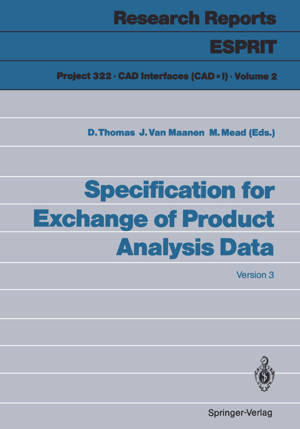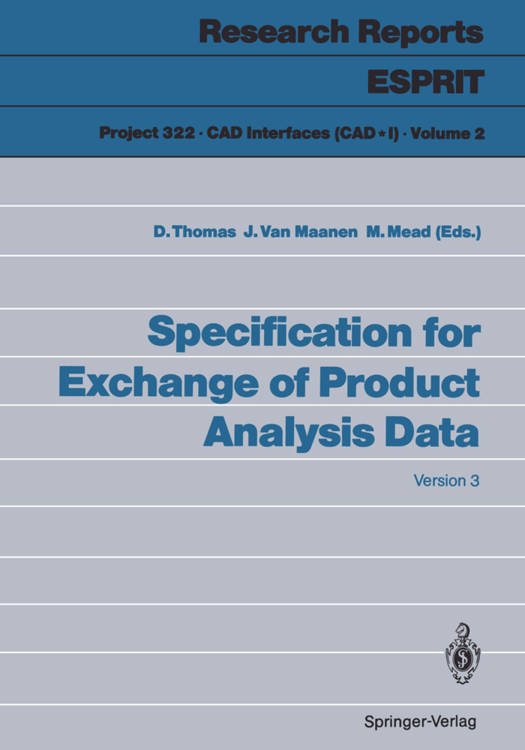
- Afhalen na 1 uur in een winkel met voorraad
- Gratis thuislevering in België vanaf € 30
- Ruim aanbod met 7 miljoen producten
- Afhalen na 1 uur in een winkel met voorraad
- Gratis thuislevering in België vanaf € 30
- Ruim aanbod met 7 miljoen producten
Zoeken
Specification for Exchange of Product Analysis Data
Version 3
€ 125,95
+ 251 punten
Omschrijving
During the past 25 years computers have been introduced in industry to perform technical tasks such as drafting, design, process planning, data acquisition, process control, and quality assurance. Computerized solutions nevertheless have normally been single, isolated devices within a manufacturing plant. Computer technology is still evolving rapidly. The life cycle of todays' products and production methods is shortening, with continuously increasing requirements of customers, and a trend to market interrelations between companies at a national and international level. This urges a need for efficient storage retrieval and exchange of information. Integration of information flow is urgent inside companies to closely connect together departments, which used to work, more or less, on their own. On the other hand direct communication with outside customers, suppliers, and partner institutions will often determine the position of an enterprise among the competitors. In this sense, computer integrated manufacturing (CIM) is the key of today for the competitiveness of tomorrow. But the realisation of a future- oriented CIM concept is not possible without powerful, widely accepted, and standardised interfaces. They are the vital issue on the way to CIM. They will contribute to harmonise data structures and information flows and play a major role for open CIM systems. Standardised interfaces should allow for: Access to data produced and archived on computing equipment which is no longer in active use; Communication between hardware and software from different vendors; Paperless exchange of information.
Specificaties
Betrokkenen
- Uitgeverij:
Inhoud
- Aantal bladzijden:
- 146
- Taal:
- Engels
- Reeks:
- Reeksnummer:
- nr. 2
Eigenschappen
- Productcode (EAN):
- 9783540515791
- Verschijningsdatum:
- 23/08/1989
- Uitvoering:
- Paperback
- Formaat:
- Trade paperback (VS)
- Afmetingen:
- 170 mm x 244 mm
- Gewicht:
- 272 g

Alleen bij Standaard Boekhandel
+ 251 punten op je klantenkaart van Standaard Boekhandel
Beoordelingen
We publiceren alleen reviews die voldoen aan de voorwaarden voor reviews. Bekijk onze voorwaarden voor reviews.






